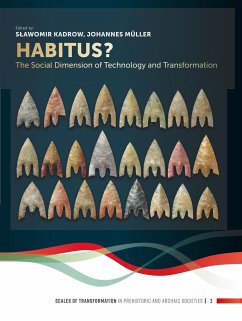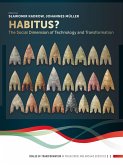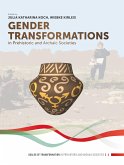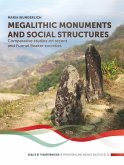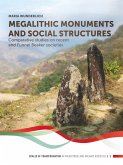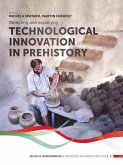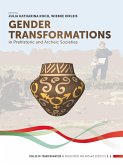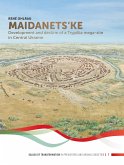The problem of the social dimension of technology and transformation seen in the perspective of the habitus has been repeatedly undertaken in various works. However, the complexity of these phenomena causes subsequent attempts to be presented and explained again in new contexts, bringing interesting observations.
The edited volume aims to contribute to our better understanding of a system of embodied dispositions hidden under the term 'habitus'. This will be achieved by presenting the latest studies in the social dimension of technology and transformation. These studies mainly cover the areas of Europe from Scandinavia to Italy and to the Balkans and from the British Isles to the Ukraine and to the North Caucasus. In one case, ethnoarchaeological field studies were conducted in distant Indonesia, but they are used to interpret the Hallstatt Culture in Europe. In the chronological dimension, they include the time from the Neolithic to the beginning of the Iron Age. Among the topics discussed are rock art, Trypillian megasites, stone axes and adzes, metallurgy, wagons, archery items, pottery produced on a fast wheel, mechanisms of cultural genesis, dualistic social systems and comments on Pierre Bourdieu's theory of practice, including the concept of habitus.
The volume Habitus, the social dimension of technology and transformation is intended for international academia, representing an important set of information and interpretations for all archaeologists and readers interested in European prehistory.
Contents
Introduction
Slawomir Kadrow, Johannes Müller
Habitus as a Theoretical Concept
Vesa P. J. Arponen
Society and technology in the Neolithic and Eneolithic of the Balkans
Marko Porcic
Axe as landscape technology. How did it transform societies and landscapes?
Jan Kolár
'If we want things to stay as they are, things will have to change': the case of Trypillia
Bisserka Gaydarska
Does the social field cause or accelerate social and cultural changes? The case of Eneolithic Cucuteni-Tripolye cultural complex
Aleksandr Diachenko
The Maykop legacy - new social practice and new technologies in the 4th millennium BC in the North Caucasus
Sabine Reinhold
The production and use of archery-related items as a reflection of social changes during the Late Neolithic and the Early Bronze Age in Europe
Clément Nicolas
The Appearance, Disappearance, and Reappearance of Non-Figurative Rock Art during the South Scandinavian Neolithic and Bronze Age
Rune Iversen
Changing pottery production technologies in urbanising societies in the Bay of Naples (8th-7th centuries BCE)
Lieve Donnallan
Dualist socio-political systems in SE Asia and the interpretation of late prehistoric European societies
Christian Jeunesse
The Diversity in a Theory of Cultural Genesis for the East European Bronze Age
Valentine Pankowski
Hinweis: Dieser Artikel kann nur an eine deutsche Lieferadresse ausgeliefert werden.
The edited volume aims to contribute to our better understanding of a system of embodied dispositions hidden under the term 'habitus'. This will be achieved by presenting the latest studies in the social dimension of technology and transformation. These studies mainly cover the areas of Europe from Scandinavia to Italy and to the Balkans and from the British Isles to the Ukraine and to the North Caucasus. In one case, ethnoarchaeological field studies were conducted in distant Indonesia, but they are used to interpret the Hallstatt Culture in Europe. In the chronological dimension, they include the time from the Neolithic to the beginning of the Iron Age. Among the topics discussed are rock art, Trypillian megasites, stone axes and adzes, metallurgy, wagons, archery items, pottery produced on a fast wheel, mechanisms of cultural genesis, dualistic social systems and comments on Pierre Bourdieu's theory of practice, including the concept of habitus.
The volume Habitus, the social dimension of technology and transformation is intended for international academia, representing an important set of information and interpretations for all archaeologists and readers interested in European prehistory.
Contents
Introduction
Slawomir Kadrow, Johannes Müller
Habitus as a Theoretical Concept
Vesa P. J. Arponen
Society and technology in the Neolithic and Eneolithic of the Balkans
Marko Porcic
Axe as landscape technology. How did it transform societies and landscapes?
Jan Kolár
'If we want things to stay as they are, things will have to change': the case of Trypillia
Bisserka Gaydarska
Does the social field cause or accelerate social and cultural changes? The case of Eneolithic Cucuteni-Tripolye cultural complex
Aleksandr Diachenko
The Maykop legacy - new social practice and new technologies in the 4th millennium BC in the North Caucasus
Sabine Reinhold
The production and use of archery-related items as a reflection of social changes during the Late Neolithic and the Early Bronze Age in Europe
Clément Nicolas
The Appearance, Disappearance, and Reappearance of Non-Figurative Rock Art during the South Scandinavian Neolithic and Bronze Age
Rune Iversen
Changing pottery production technologies in urbanising societies in the Bay of Naples (8th-7th centuries BCE)
Lieve Donnallan
Dualist socio-political systems in SE Asia and the interpretation of late prehistoric European societies
Christian Jeunesse
The Diversity in a Theory of Cultural Genesis for the East European Bronze Age
Valentine Pankowski
Hinweis: Dieser Artikel kann nur an eine deutsche Lieferadresse ausgeliefert werden.

